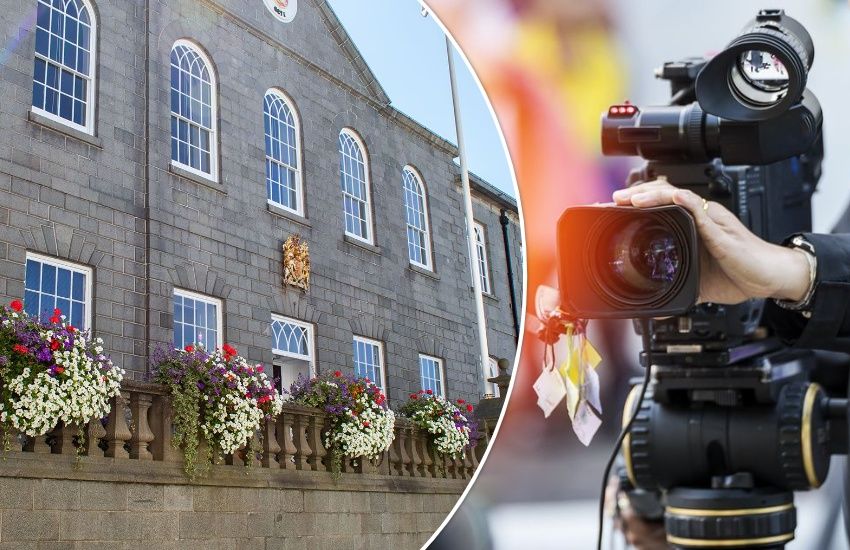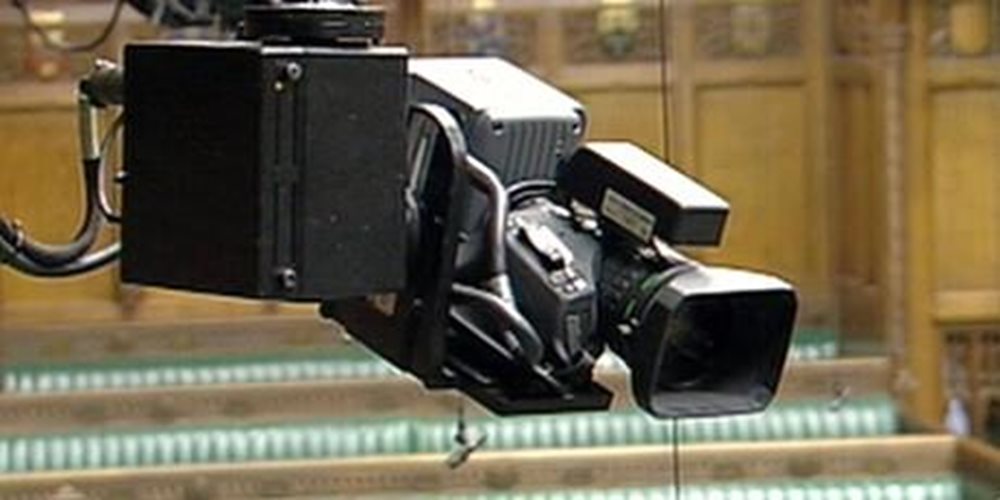


Guernsey is one of the only places in the British Isles that does not provide the public with some filmed element of its legislature in action.
Fresh political calls have now been made for change in the States Assembly after some members were accused last week of routinely walking out of meetings when certain deputies deliver their speeches.
The audio of Guernsey States meetings has been recorded since 1983, but the rules only made provisions for radio and not television or streaming.
In 2015 livestreaming of the States was made available, initially only to the BBC and without the ability to review the recordings. The demands of the coronavirus pandemic later forced the first ever virtual States meeting to be held through Microsoft Teams on April 14 2020.
The public were, and continue to be able to listen to States meetings online through a government-facilitated streaming service. The States publishes links to the meetings on their website and social media feeds ahead of time.
But Deputy Lindsay De Sausmarez, who was at the centre of the row over States meeting courtesy, believes more can be done now to ‘open the doors’ of the Assembly even further to the public.
“There is already a security camera in the Royal Court that captures the whole chamber, so there’s a ‘wide’ shot that could potentially be shown on gov.gg through or alongside the States meeting Teams channel,” she said.
She added whilst this single camera would fail to provide expressive shots of individual deputies, it would be “better than nothing” and would allow the public to see the movements of deputies, the number still wishing to speak during a guillotine motion, and “who looks like they might be falling asleep”.

Pictured: The public is constantly filmed by CCTV cameras operating outside and inside of the Royal Court.
The British House of Commons first started transmitting live recordings of proceedings in November 1989. The BBC has since reported that “arguments that television would somehow trivialize Parliament were swept away, and MPs realised the benefits of having their words reach a wider audience".
John Angeli, Director at the Parliamentary Broadcasting Unit, said that digital distribution has been the most effective way “of increasing public access to the totality of proceedings in Parliament”.
Jersey formally proposed the idea in 2015 and by the following September cameras were broadcasting States meetings to the public through the government website. The media is also allowed to reproduce clips from meetings online and on television.
The total cost of broadcast was approximately £17,000 for an initial five years. It was initially calculated as costing upwards of £22,000 to deliver the service.
Recordings are available for six months online, and the public can even search through clippings by specific topics or politicians.
Isle of Man politicians also unanimously voted to allow television cameras to operate from within their parliament, Tynwald, in 2017.

Pictured: Live broadcasts of Her Majesty’s Government began over 30-years ago. Credit: UK Parliament.
Under the proposals for Jersey’s service, propositions from the Privileges and Procedures Committee (PPC) argued that a sophisticated operation akin to that at Westminster wasn’t necessary to guarantee an acceptable quality.
The PPC also said that “the ability to view footage again in the archive is likely to be the most useful part of the new system, as it will enable anyone interested in the work of the States who has not been able to listen live to access relevant parts of proceedings".
Concerns were raised throughout the British Isles at the implications of the new technologies, with opponents arguing it would trivialize politics and lead to certain individuals playing specifically to the cameras and microphones.
But the PPC said: “Concerns were expressed in Jersey in the mid-1980s when the radio was first allowed to broadcast the proceedings of the Assembly, and in other parliaments such as the House of Commons, when cameras were first introduced but, in both cases, any potential disadvantages were greatly outweighed by the benefits of opening up legislatures to a wider audience.”
It added that the potential for satirical or critical edits of recordings could not be prevented and did not represent “a sufficient concern to outweigh the significant benefits”.
This is why I'm keen that States meetings are recorded visually, so the electorate can see the behaviours. There is a block of deputies who make a point of walking out every time I get up to speak, for example. This is not how grown ups should behave, let alone parliamentarians.
Pictured: Deputy De Sausmarez expressed her support for filmed democracy on Twitter following last week’s States meeting.
Ex-Deputy Ivan Rihoy made the case for visually recorded meeting of the States to the BBC 12-years ago: "Sometimes listening to the radio you don't get the feeling when a person is speaking, his or her expressions and the way things are put across... and perhaps have a better understanding,” he said.
And Deputy De Sausmarez says the issue has been raised since: “We considered ‘televising’ States meetings when I was on [The States Assembly and Constitution Committee] a few years ago and from memory it was not progressed at that time mainly because we had more pressing priorities -such as a referendum to plan and implement - plus the potential cost implications.
“At that time – which was before the days of Teams/hybrid States meetings, of course – one of the key questions was how it would be broadcast. Now we have a ready-made channel… which members of the public can access afterwards."
She claims that costs can be reduced by not requiring a live mixed broadcast which would involve more crew for filming and editing proceedings.
“I think there could be some options that are more viable now than they might have been a few years ago, that wouldn’t need to involve expensive hardware, systems or manpower to deliver,” she said.
“I hope it’s something SACC reconsiders as I think it would be a great opportunity to make States meetings more transparent and accessible to a wider section of the electorate.”
Express has contacted SACC, who have political responsibility for broadcasts of States meetings, for further comment.
Comments
Comments on this story express the views of the commentator only, not Bailiwick Publishing. We are unable to guarantee the accuracy of any of those comments.